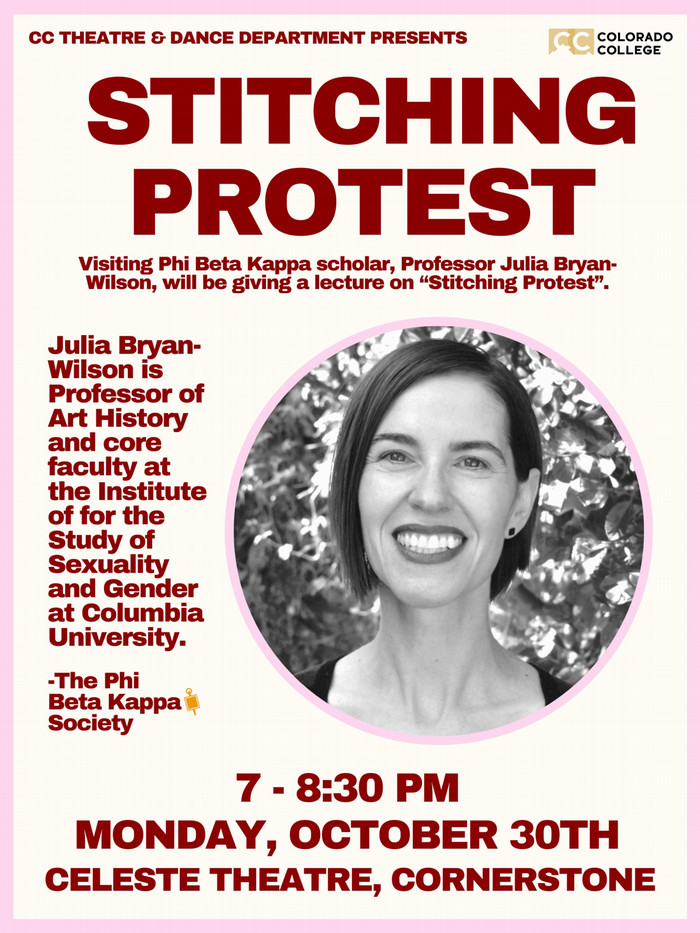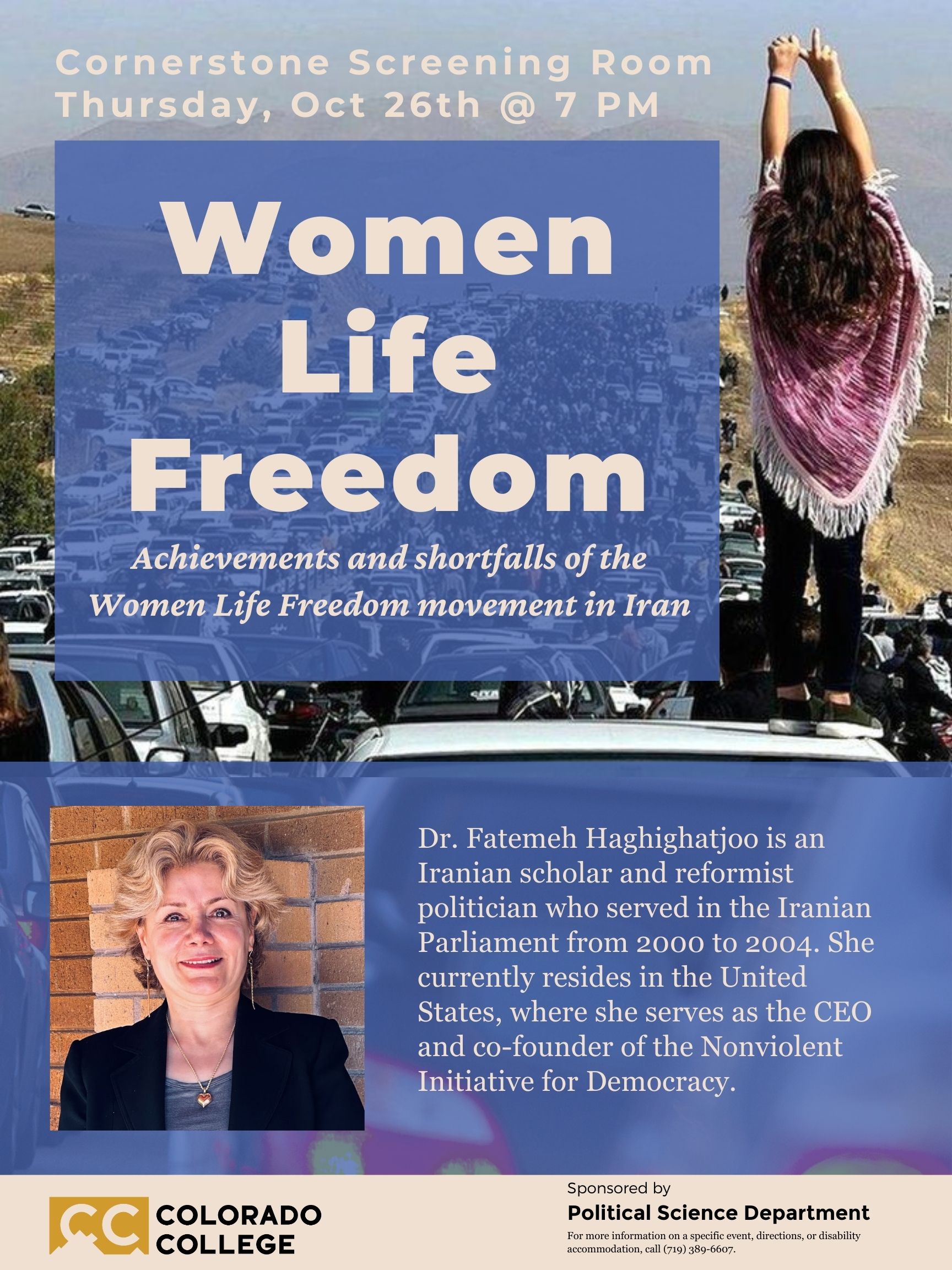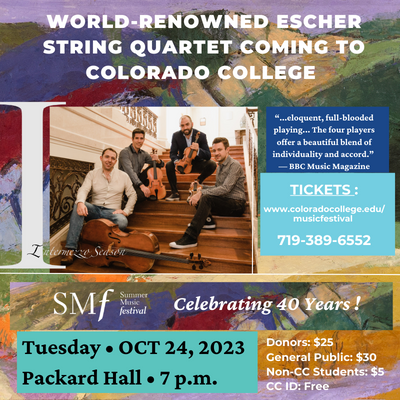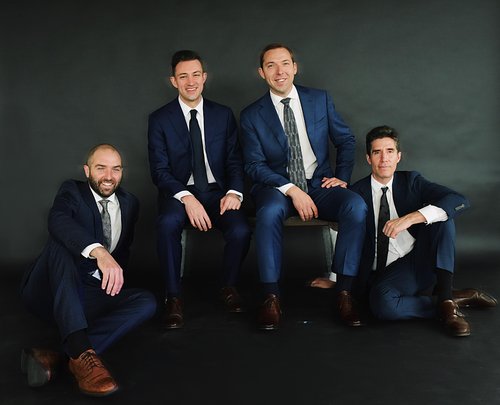|
|
|
Colorado College Receives its First Higher Education Excellence in Diversity Award
|
|
By Alexa Gromko
CC has received the 2023 Higher Education Excellence in Diversity (HEED) Award from INSIGHT Into Diversity magazine, the oldest and largest diversity-focused publication in higher education. This is the first time CC has earned this distinction and it is validation for extensive institutional work committed to antiracism, diversity, equity, and inclusion.
As a recipient of the annual HEED Award — a national honor recognizing U.S. colleges and universities that demonstrate an outstanding commitment to diversity, equity, and inclusion — CC will be featured in theNovember/December 2023 issue of INSIGHT Into Diversity magazine.
“We are honored to be recognized with this prestigious award, the only one of its kind in the country,” says President L. Song Richardson. “At a time when we are seeing a problematic rolling back of important civil rights gains, preparing our students to create a more equitable and just society will take continued courage and commitment. I’m proud of our students, staff, faculty, and ADEI leadership team for their dedication to this important work.”
|
|
|
Huge Congratulations to Associate Professor Natalie Gosnell for Receiving a Cottrell Scholar Collaborative Award!
|
|
Natalie Gosnell, Associate Professor of Physics, is part of a winning team that secured a $25,000 Cottrell Scholar Collaborative Award from the Research Corporation for Science Advancement (RCSA). Gosnell’s team project, titled “Lead Better, Disrupt Barriers, and Have an Impact,” beautifully aligns with our institutional values.
The RCSA has generously granted four collaborative projects $25,000 each, stemming from discussions at the 2023 Cottrell Scholar Conference. This conference’s focal point was incentivizing cultural change within academia.
These Cottrell Scholar Collaborative teams are composed of individuals who have been recognized as Cottrell Scholars, Fulbright-Cottrell Scholars, and Robert Holland Jr. Award recipients and who regularly attend the annual conference. Together, they work across various disciplines and collaborate with national initiatives to pioneer innovative and highly impactful methods aimed at fostering positive change and enhancing both undergraduate and graduate-level science education.
|
|
Learn About Confidential Reporting
Did you know CC has several confidential reporting systems for the community to report concerns? Concerns about discrimination, harassment, sexual misconduct, dating/domestic violence, and stalking or related retaliations can be reported to the Office for Civil Rights and Title IX. CC also offers an anonymous reporting platform, Speak Up Colorado College, that is reliable and confidential for a variety of concerns, from Title IX issues to misconduct and ethical concerns. The Ombuds Office can also help resolve workplace or interpersonal conflict, offer suggestions for constructive change, and much more.
Come learn and ask questions at “Reporting at CC ,” led by Ty Nagamatsu, Ombuds, Joshua Isringhausen, Assistant Director for Civil Rights and Interim Title IX Coordinator, and Lyrae Williams, Associate Vice President of Institutional Planning and Effectiveness. Register to learn and ask questions about reporting at CC.
This event, part of the Work of the College Series, will be held in Gaylord Hall on Thursday, Oct. 26 from 2-3 p.m. Register in advance.
|
|
|
|
Get to Know Alexa Gromko, Director of External Relations and Editorial Content
|
|
What does your job entail?
I handle media relations and PR for CC and oversee the CC Stories and Newsroom content on the college website. I respond to media inquiries and seek opportunities that align with our strategic priorities by working with our president, faculty, and staff experts. I provide media training to all faculty and staff and write stories for our website.
Where did you work before CC and what were you doing?
I spent much of my career as an Emmy-Award-winning television news anchor and reporter, working in television markets around the country including Denver, Colorado Springs, Portland, OR, and Lexington, KY. I anchored newscasts, reported on local stories, served as a keynote speaker and emcee, and produced a documentary in the former Soviet Union. From there, I began coaching C-suite executives at the Center for Creative Leadership as an adjunct faculty member. I’ve also held several roles in public relations representing AAA Colorado, the U.S. Olympic & Paralympic Museum, the Colorado State Fair, and Mount Carmel Veterans Service Center.
Tell us a little about your background.
I’m a lifelong Coloradan whose passion for this magnificent state knows no bounds. I grew up in Littleton (now Centennial) in a close-knit family, where I discovered my competitive nature when playing soccer with my brothers, my passion for cheering on the Denver Broncos at Mile High Stadium, my adventurous spirit while tent camping all over the state and the country—even Alaska—and neighborhood friendships I cherish to this day.
|
|
|
|
Finance Symposium Shows the Business Strength of a CC Degree
|
|
|

|
Jason Bogardus ’93 gives the keynote speech at the 6th annual Finance Symposium at CC on Oct. 12.
Photo by Megan Clancy ’07.
|
|

|
CC students and alumni attendees listen to the keynote speech before breaking into discussion sessions at the 6th annual Finance Symposium at CC on Oct. 12.
Photo by Megan Clancy ’07.
|
|
|
|
|
By Megan Clancy ’07
On Oct. 12, 2023, eleven CC alumni from a variety of areas across the finance sector returned to campus for the sixth annual Finance Symposium. The Career Center and the CC Investment Club hosted the event, where students had the opportunity to hear from and network with these alumni. The purpose of the event is to help students better understand the finance industry and how to prepare for applying to finance opportunities by connecting students with alumni and recruiters. The event organizers initially anticipated 25 to 30 students would attend. The final count of students crowded into McHugh Commons was 70.
“That is great,” said Bogardus. “This is the time to think about your finance career. My strategy was to only think about it a week after graduating.” He then told how, after leaving CC, he went to travel across Europe and spent weeks cold-calling anyone he could find who was a CC alum working in finance in Europe. His hard work, and admitted unrelenting calling of one particular alum, eventually paid off and Bogardus got his first job working at Citibank Paris.
|
|
|
Just in Time for Halloween, Misery Opened Last Week at FAC
|
|
|

|
Clark Scott Carmichael and Casey Killoran, on set for Misery.
Photo by Jeff Kearney
|
|
|
|
|
Misery, a play by William Goldman based on the Stephen King novel, runs on the Main Stage in the FAC from Oct. 12-29. Misery follows successful romance novelist Paul Sheldon, who is rescued from a car crash by his “number one fan,” Annie Wilkes, and wakes up captive in her secluded home. While Paul is convalescing, Annie reads his latest book and becomes enraged when she discovers the author has killed off her favorite character, Misery Chastain. Annie forces Paul to write a new Misery novel, and he quickly realizes Annie has no intention of letting him go anywhere. The irate Annie has Paul writing as if his life depends on it, and it does.
CC students can purchase rush tickets the day of the performance for $15 or get a FREE rush ticket 1 hour before the performance! CC staff and faculty can purchase rush tickets the day of the performance for $30. Tickets subject to availability; must purchase in person at the FAC front desk and present a CC Gold Card.
|
|
|
Children’s Theatre is Back at the FAC!
|
|
It starts so simply: A red balloon drifts through the window of a solitary old man’s home. But then some serious silliness begins — with things fast becoming so magical and so blissfully fun, you barely notice that along the way you’ve learned something about the extraordinarily transformative power of play! Without a single spoken word, this sweet, inventive, and uplifting show — packed with plenty of playful shtick, along with touching reminders of the ups and downs of building a friendship — is a tender and laugh-filled delight for little ones (and big ones, too)!
Balloonacy by Barry Kornhauser runs Oct. 28-Nov. 19 in the Music Room at the Colorado Springs Fine Arts Center at Colorado College. CC students can purchase rush tickets the day of the performance for $15 or get a FREE rush ticket 1 hour before the performance! Tickets subject to availability; must purchase in person at the FAC front desk and present a CC Gold Card. Visit our website for more information.
|
|
|

|
Trailer for Misery at the Fine Arts Center
Video by Ray Bailey
|
|
|
|
|
|
|
 |
|


















